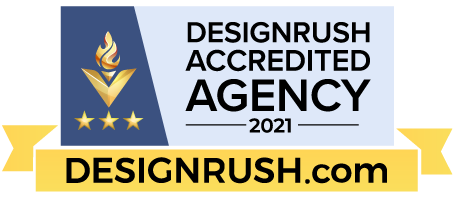Web Designer Courses: Career Opportunities Explained. In today’s digital age, the demand for skilled web designers is at an all-time high. With businesses and individuals alike striving for a compelling online presence, the role of a web designer has become more crucial than ever. If you’re contemplating a career in web design or looking to enhance your skills, a web designer course could be your gateway to success.
- Growing Demand for Web Designers: The U.S. Bureau of Labor Statistics projects that employment in web development and digital design is expected to grow by 13% from 2020 to 2030, which is faster than the average for all occupations. This growth is partly driven by the increasing popularity of mobile devices and e-commerce (U.S. Bureau of Labor Statistics).
- Influence of Web Design on First Impressions: Research indicates that it takes about 50 milliseconds (0.05 seconds) for users to form an opinion about your website that determines whether they’ll stay or leave. This highlights the critical role of web design in making positive first impressions (Behaviour & Information Technology).
- Impact of Responsive Design on Sales and Traffic: According to a report by SocPub, 57% of internet users say they won’t recommend a business with a poorly designed website on mobile. This underscores the importance of responsive web design in maintaining a strong online presence and customer base (SocPub).
- Preference for Video Content: A study by HubSpot revealed that 54% of consumers want to see more video content from a brand or business they support. Web designers skilled in integrating video content can significantly enhance user engagement on websites (HubSpot).
- E-learning Growth: The global e-learning market is anticipated to reach $325 billion by 2025. The rising popularity of online learning platforms demonstrates the accessibility and demand for web designer courses offered online (Forbes).
This blog explores the ins and outs of web designer courses, offering insights into what you can expect and how to choose the right program for your career aspirations.
Understanding Web Designer Courses
Web designer courses are specialized training programs designed to equip learners with the necessary skills and knowledge to create visually appealing and user-friendly websites. These courses cover a wide range of topics, from basic HTML and CSS to advanced interactive design and user experience (UX) principles.
For those looking to delve deeper into web design or seeking guidance on starting their journey, consider exploring more resources and courses that cater to your specific interests and needs. Remember, the path to becoming a proficient web designer is a blend of creativity, technical skill, and continuous learning.
Key Components of a Web Designer Course
- Foundational Skills: At the core, web design courses teach the basics of HTML (Hypertext Markup Language) and CSS (Cascading Style Sheets), the building blocks of the web. Understanding these languages is crucial for creating structured content and styling web pages.
- Design Principles: Courses delve into design fundamentals, including color theory, typography, and layout design, ensuring that students can create aesthetically pleasing and coherent web designs.
- User Experience (UX) and User Interface (UI) Design: A significant focus is on UX and UI design, teaching students to create user-centric designs that enhance usability and user satisfaction.
- Responsive Design: With the proliferation of mobile devices, learning responsive design is paramount. This involves designing websites that adapt seamlessly to various screen sizes and devices.
- Content Management Systems (CMS): Many courses introduce popular CMS platforms like WordPress, equipping students with the skills to build and manage content-driven websites efficiently.
- SEO Fundamentals: Understanding the basics of Search Engine Optimization (SEO) is often part of the curriculum, helping designers create search-friendly websites that rank well on Google and other search engines.
Choosing the Right Web Designer Course
Selecting the right course can be daunting, given the myriad of options available online and offline. Here are some factors to consider:
- Curriculum: Ensure the course covers the essential topics you’re interested in, from the basics to more advanced concepts like interactive design and UX principles.
- Format: Courses are available in various formats, including online, in-person, and hybrid models. Consider your learning style and schedule when choosing the format that best suits your needs.
- Instructor Expertise: Look for courses taught by experienced professionals with a proven track record in web design. Experienced instructors can provide invaluable insights and real-world examples.
- Hands-on Learning: Opt for courses that offer practical, hands-on projects. This will allow you to apply what you’ve learned and build a portfolio of work, which is crucial for job hunting.
- Certification and Accreditation: While not always necessary, a certificate from a reputable institution can add value to your resume and help you stand out in the job market.
- Reviews and Testimonials: Research what past students have to say about the course. Student reviews can provide insights into the course’s effectiveness and whether it meets its promises.
The Future of Web Design
The field of web design is constantly evolving, with new trends and technologies emerging regularly. Staying up-to-date with these changes is crucial for aspiring and practicing web designers alike. Continuous learning and adaptation are key to success in this dynamic field.

FAQs on Web Designer Courses
1. What will I learn in a web designer course?
Answer: A web designer course typically covers HTML, CSS, design principles like color theory and typography, UX/UI design, responsive design, and often includes CMS usage, SEO basics, and interactive design elements.
2. Do I need prior experience to enroll in a web designer course?
Answer: Most beginner courses don’t require prior experience and start with the basics. However, intermediate or advanced courses might require some foundational knowledge in web design or related fields.
3. How long does a web designer course usually take?
Answer: Course duration can vary widely from a few weeks for short-term courses to several months or even years for degree programs or comprehensive boot camps.
4. Can I take a web designer course online?
Answer: Yes, there are many reputable online platforms offering web designer courses that range from introductory to advanced levels, catering to various schedules and learning styles.
5. What tools and software will I need?
Answer: Basic requirements include a computer and internet access. Specific courses might require software like Adobe Creative Suite, Sketch, or Figma, and access to web hosting for practical projects.
6. Is certification important for a career in web design?
Answer: While not always necessary, certifications from recognized institutions or platforms can enhance your resume, validate your skills, and increase your competitiveness in the job market.
7. How much does a web designer course cost?
Answer: Costs vary greatly depending on the course provider, format, and duration. Prices can range from free online tutorials to expensive tuition for accredited degree programs or boot camps.
8. Will a web designer course help me find a job?
Answer: A comprehensive course can equip you with marketable skills and a portfolio, which are crucial for job hunting. Many courses also offer career support services.
9. Can I freelance as a web designer after completing a course?
Answer: Absolutely. Many web designers work as freelancers. A course can provide you with the necessary skills to start taking on freelance projects and building your client base.
10. How do I choose the right web designer course for me?
Answer: Consider factors like your current skill level, career goals, preferred learning style, and budget. Research course reviews, instructor credentials, and the curriculum to ensure it meets your needs.
Conclusion: Web Designer Courses
Embarking on a web designer course can be a transformative journey, opening doors to numerous opportunities in the digital world. Whether you’re aiming to work with a leading tech company, join a creative agency, or freelance, the skills acquired from a web designer course are invaluable. Choose a course that aligns with your career goals, offers comprehensive training, and provides practical experience.
If you’re interested in learning more about web design and how it can enhance your career, book a consultation with us at Infotyke. Let’s explore how we can help you achieve your web design aspirations.





